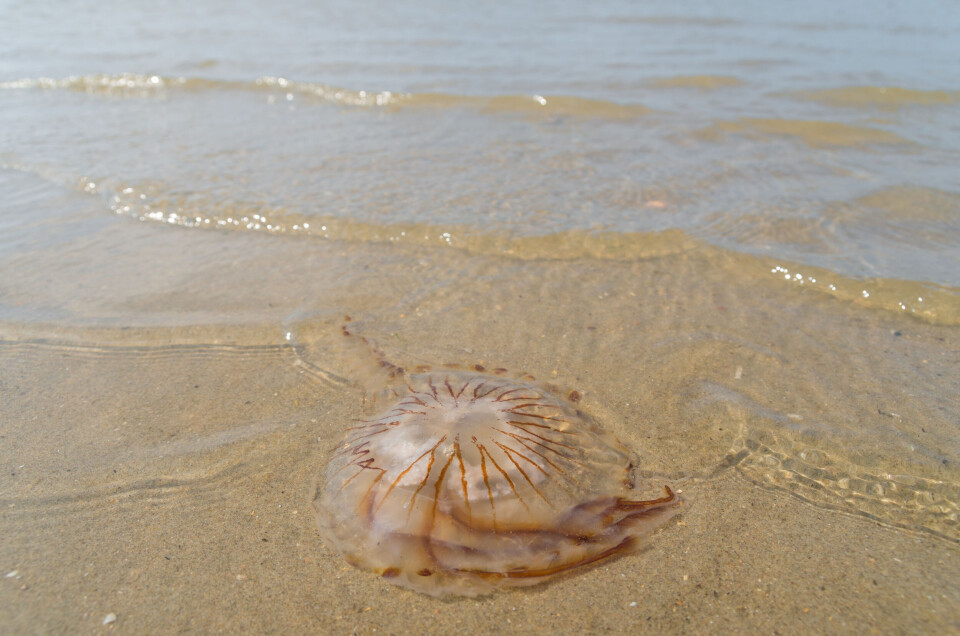-
Occitanie copper phase-out ramps up – how it will affect residents
There are some simple steps you can take to prepare for the switchoff
-
Which cars are stolen the most in France and why?
Perhaps surprisingly, the higher-end vehicles are not the most targeted
-
Several wolf sightings in centre of Frejus, Var
Rules have been relaxed around shooting wolves that threaten livestock
Jellyfish back on French beaches: where are they, what to do if stung?
Thousands have been spotted in recent days and experts say climate change is likely to make them more of a common sight

Several thousand jellyfish have been spotted on beaches across France in the past few days, including on the country’s Atlantic and Mediterranean coasts.
Large numbers have been reported on beaches in Charente-Maritime, Loire-Atlantique, and Finistère, as well as near Perpignan and between Marseille and Nice.
Why so many?
Several factors have contributed to their arrival, Grégory Beaugrand, bio-climatologist and research director of the Centre national de la recherche scientifique (CNRS) told FranceInfo.
These include:
-
The rising temperatures. Waters have risen by 3-4C in some areas over the past few weeks, as summer arrives.
-
The abundance of plankton (fish larvae), crabs, and sea urchins. Jellyfish eat these, and a plentiful supply helps them reproduce. They can multiply quickly over three or four weeks.
-
Good wind conditions. These push the jellyfish towards the shore.
The sightings do not necessarily mean that this is a ‘bumper jellyfish year’, as the phenomenon is normal and is likely to disappear soon.
However, jellyfish may become a more common sight on beaches in future due to climate change, as marine animals like warm water currents. Similarly, overfishing can increase their number, as fish are one of their predators.
What if you are stung by a jellyfish?
People are warned to try to avoid jellyfish, but in case you accidentally get stung, the advice is:
-
Wash the area with seawater. Do not use fresh water as this ‘liberates’ and diffuses the venom, causing more pain.
-
Contrary to myth, using urine on the sting does not help. It can have the same effect as fresh water.
-
Remove any irritating filaments left on the skin. Apply warm sand, and scrape them gently, such as with the side of a bank card.
-
Stings usually get better on their own. However, in case of severe or abnormal swelling, see a doctor.
Beachgoers are also advised to avoid covering the jellyfish in sand, as this makes the animals harder to avoid (and easier to accidentally step on) if they are hidden.
Related articles
Mystery of thousands of fish washed up on beaches in Brittany
Worries over fish and ecosystem as Mediterranean sea set to reach 30C
























